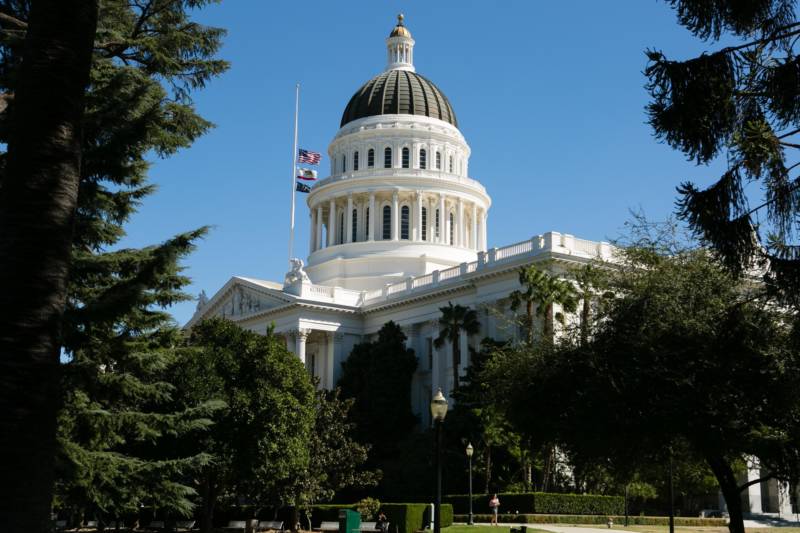Transportation/DMV
Temporary license plates: Auto dealers will be required to place temporary plates on vehicles leaving the lot so that the cars can be identified by electronic toll collectors.
Nonbinary licenses: Californians applying for a driver's license or ID will have the option of selecting nonbinary under the gender identification.
DUI ignition interlock devices: Repeat offenders driving under the influence, or those whose violations caused injury. will be required to install an ignition interlocking device for one to four years.
Smog Check exemption: Vehicles up to eight years old will be exempt from smog checks, up from the current six-year exemption.
Scooter helmets: Motorized scooter riders over the age of 18 will no longer be required to wear a helmet.
Wildfires
Change in liability law: For future fires, the California Public Utilities Commission will be allowed to consider a wide range of factors in determining whether the costs of a wildfire can be passed on to ratepayers. Utilities will be required to create wildfire mitigation plans, and have their compliance independently monitored.
Emergency alerts: Counties will have the option of enrolling residents in an emergency notification program, accessing their contact information through records of public utilities, or water and waste services. Residents will be able to opt out of the alerts.
Insurance renewals: Requires insurers to offer two annual renewals and 36 months of living expenses to victims of major disasters.
Environment
Offshore oil drilling: Ban on new pipelines or other infrastructure that could support new oil drilling in federal waters off California's coast.
Elections
Paid postage with mail ballots: Requires that all mail ballots come with an envelope with prepaid postage for returning the ballot.
Housing
Streamline supportive housing: Supportive housing developments proposed in areas where multifamily housing is already allowed can be approved without local hearings.
Conservatorship expansion: The counties of Los Angeles, San Diego and San Francisco will be allowed to expand their conservatorship programs, under which homeless people with severe mental illness are forced into the care of the county. The new criteria would be eight temporary psychiatric holds in a single year.
Criminal Justice
Unsealing of officer misconduct files: Requires that law enforcement agencies release files detailing peace officers committing sexual assault or lying on duty, using force that results in great bodily injury or any information about officer-involved shootings.
End of 'felony murder' rule: Only someone who has direct involvement or planning of a murder will be able to be charged with murder. This ends the law that allows participants in a crime that ends with a killing to be charged with murder and potentially changes the sentences of hundreds of current inmates.
Limits on charging juveniles: Children ages 11 and younger cannot be charged with a crime, except in cases of murder and sexual assault.
#MeToo
Ban on forcing 'secret settlements': Employers will not be allowed to require their workers to sign nondisclosure agreements when settling a case of sexual misconduct. Victims will still be able to agree to a secret settlement if they choose.
Sexual harassment training: Companies with at least five employees will have to provide sexual harassment training: two hours for supervisors and an hour for other employees in 2019 and every two years after that.
Harassment whistleblowing: Bans employers from requiring workers to waive sexual harassment claims or sign an agreement blocking the disclosure of unlawful acts in the workplace.
Guns
New minimum age for purchasing firearms: The new age to purchase rifles and shotguns is 21, up from 18. The sale of handguns to those under 21 is already banned.
Expanded gun possession ban: Californians with certain domestic violence misdemeanors will not be allowed to possess a firearm.
Food
Plastic straws: Restaurants will be banned from providing plastic straws unless requested by the customer. Violators can be fined $25 a day.
Children's drinks: Restaurants will be required to list water or milk as the default beverage option on a children's menu. Kids will still be able to request juice or soda.

